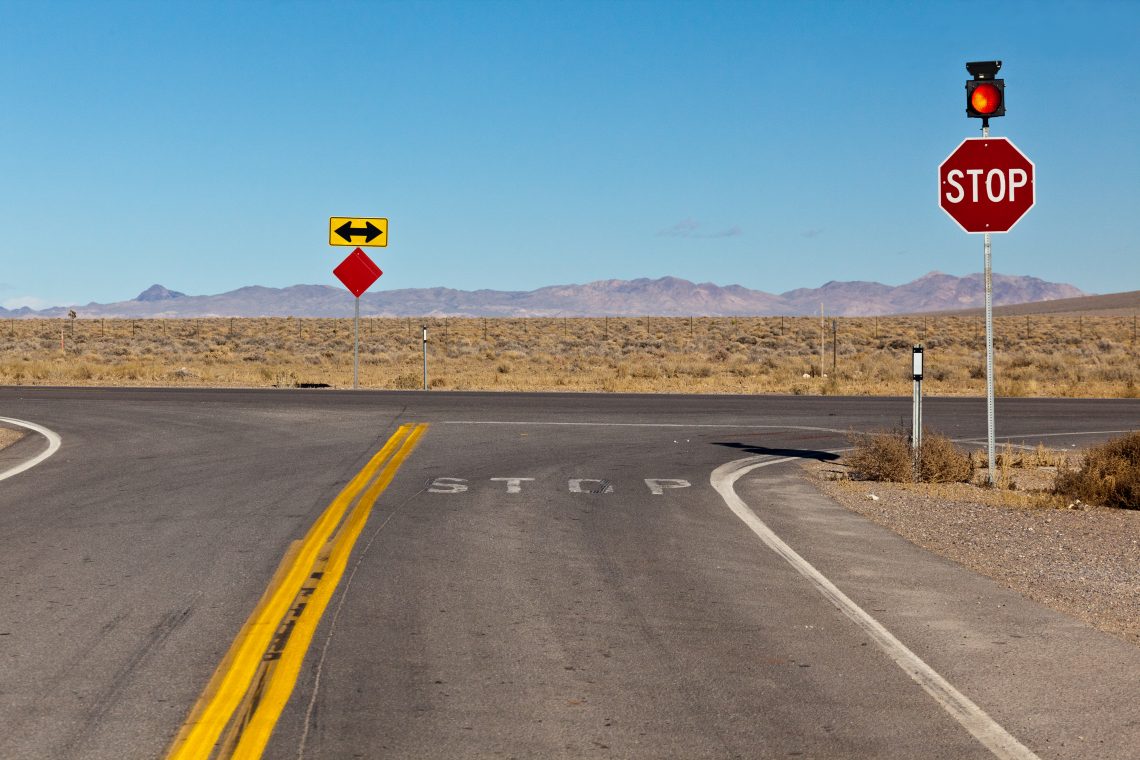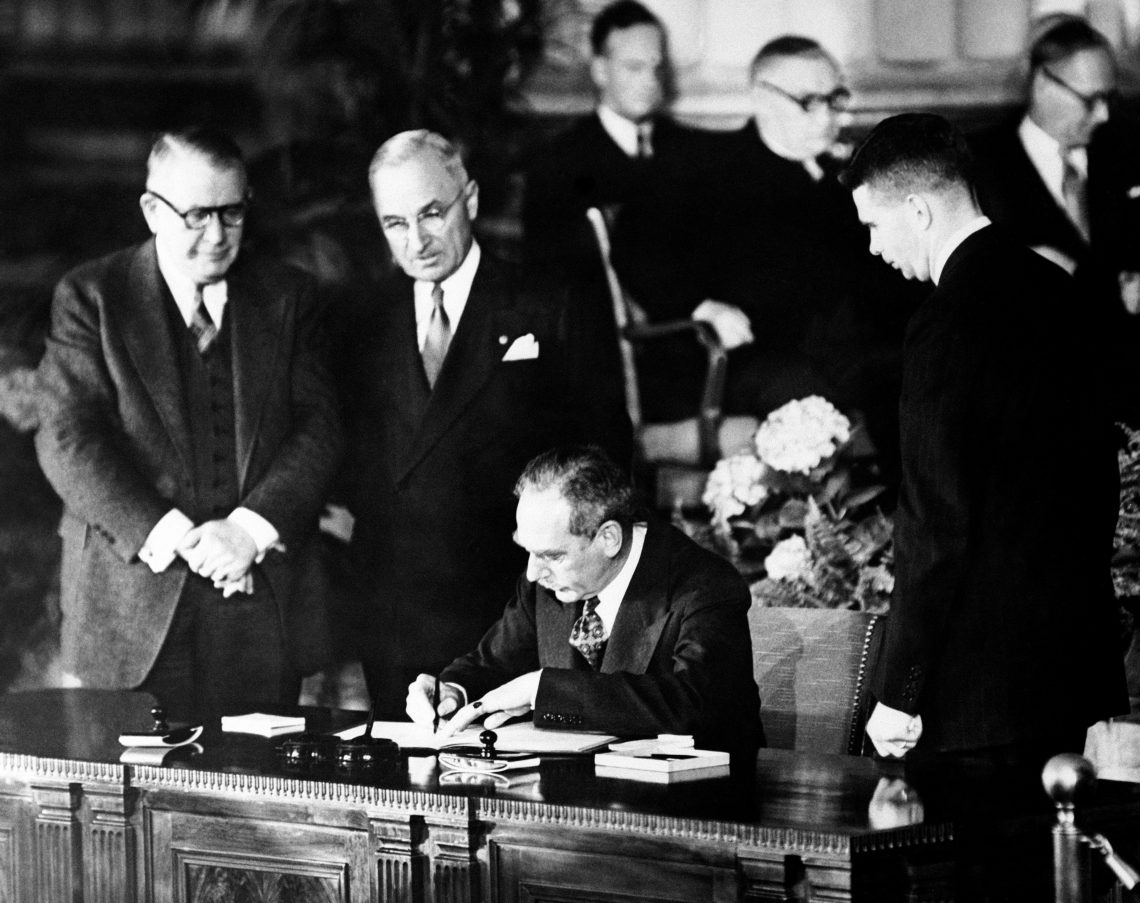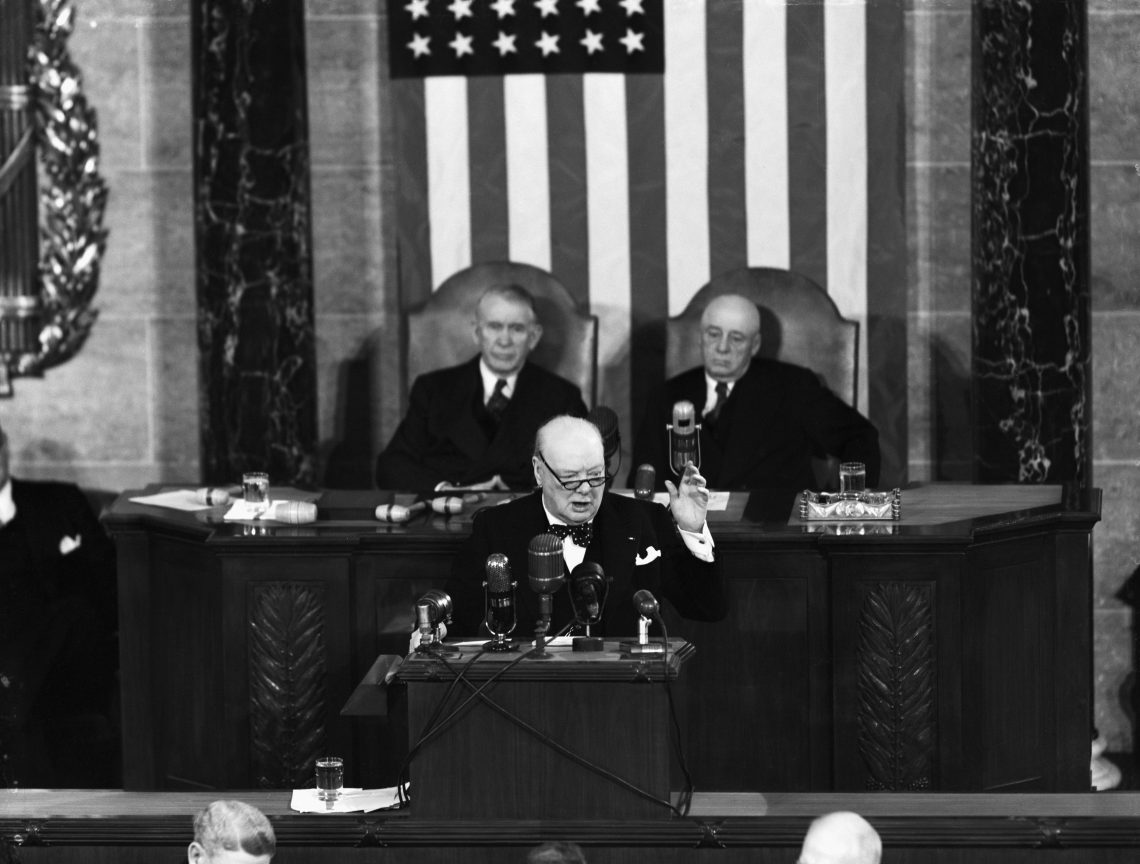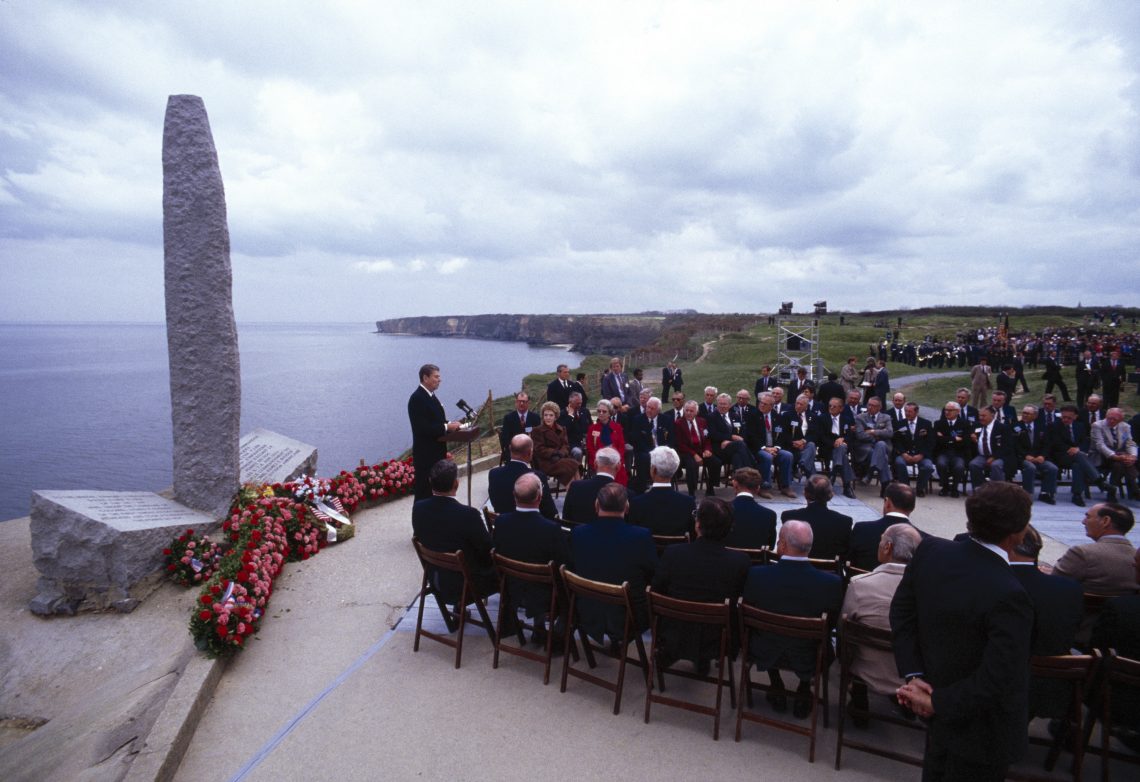At the crossroads: Will the free world choose isolationism or global leadership?
READING TIME: 16 MIN
History teaches us that isolationism leads to disaster. Will the United States and Europe choose a different path at this critical juncture?

In a nutshell
- Countries in the free world need to demonstrate leadership
- The horrors of the past were exacerbated by isolationist thinking
- A recognition of the true nature of current threats is needed
In ancient texts, crossroads are used as symbols to describe times of momentous decisions. One of the Hebrew prophets urged his listeners to stand at the crossroads; to carefully look before moving; to ask what is “the good way” before taking it; to weigh the choices and to choose wisely.
His sage advice was not only ignored, but those to whom he gave it resented his counsel and determined to kill him. Things are not so different today. Robert Frost’s poem The Road Not Taken, written in 1915, similarly dwelt on the choices we are offered in life.
The poet poignantly reminds us that if we make a bad, unwise choice, however much we regret it, we may be unable to retrace our footsteps, and, by contrast, what might superficially appear to be the least popular path can in fact be the better one: “I took the one less travelled by, and that had made all the difference.” Our nations have taken many wrong turns over the years – often lost without roadmaps, uncertain in the absence of milestones, wise and good judgement taking second place to other considerations.
Those wrong turns have taken us into world wars, totalitarian ideologies and mass murder – from Hitler’s Holocaust and Stalin’s gulags to Mao’s mass executions – atrocities committed on a scale previously unthinkable, today aided and abetted by weapons of mass destruction.
But good, wise decisions have been made too. From time to time, they have led us to reject the savage and to choose the more arduous, demanding route which involves complex choices and embraces the rule of law, human rights and democracy. This willingness to work with others to create institutions dedicated to the preservation of peace and informed by humane and civilized values rejects crude appeals to the mob.
In 1945, at the culmination of the catastrophic Second World War – the deadliest military conflict in history with fatalities of up to 85 million people and which emerged from the vilest form of national socialism – nations stood at the most critical of crossroads and made choices that have shaped mankind’s destiny for the past 80 years.
America’s power lies in the perception of its power – it is a self-fulfilling prophecy.
In 1969, Dean Acheson, President Harry Truman’s secretary of state, who was instrumental in designing United States foreign policy after World War II and during the Cold War, wrote a memoir entitled “Present at the Creation.” His analysis is deeply relevant today: America’s power lies in the perception of its power – it is a self-fulfilling prophecy.
Acheson knew that slogans and populist rhetoric were no substitute for painstaking, incremental political endeavors backed by hardworking diplomacy and practical actions: “Always remember that the future comes one day at a time.” He was scathing about good intentions and indecision.

United we stand
Article 5 of the NATO treaty states that if any member is the victim of an armed attack, every other member of the alliance will consider it an attack against all and will take the actions it deems necessary to assist the ally which has been attacked.
Former U.S. President Donald Trump has said that if any NATO ally fails to meet the minimum contribution of 2 percent of its gross domestic product to NATO, Article 5 should not apply. Should this prove to be his policy if he is again elected to the White House, the cheering in Moscow and Beijing would be deafening.
He has also threatened to leave NATO, believing the U.S. can go it alone and make deals with the likes of Russian President Vladimir Putin. Europe must take this seriously, as must all who prize a liberal world order (which Chinese President Xi Jinping and President Putin have repeatedly said they wish to overturn).
Mr. Trump argues that Europeans get their defense on the cheap – here I agree – and that apart from the United Kingdom, too many countries fail to meet their NATO defense spending target. The French, Germans and Dutch have all failed. Before the Trump presidency, average contributions from NATO countries were about 1.2 percent and increasing, but not to the level that a pre-war state of readiness requires.
Notwithstanding welcome accessions of Sweden and Finland to the alliance, it is worth recalling that NATO has had its European detractors too. In 2022 French President Emmanuel Macron described it as “brain dead,” while recently making the rash suggestion that NATO might be deployed in Ukraine. Recall that France and Germany opposed George W. Bush’s proposal that Ukraine and Georgia should be welcomed into NATO. If they had been, would President Putin have invaded Ukraine or seized close to 20 percent of Georgia’s territory? Would he be contemplating picking off Moldova next?
American isolationists seem oblivious to the obligation on the other 31 NATO members to come to America’s aid if the U.S. ever again experiences an attack like Pearl Harbor. Remember Alexander Dumas’s injunction that “Friendship consists in forgetting what one gives and remembering what one receives.”
Isolationism did not stop the Japanese attacking Pearl Harbor. It would not have stopped 9/11.
Article 5 is a value-for-money insurance policy. If China attacks the U.S. – it is far from inconceivable that the U.S. could be drawn into a war against the People’s Republic of China over Taiwan or South Korea – more than 30 countries are immediately committed to its defense. Other alliances, such as AUKUS (the trilateral security partnership for the Indo-Pacific between Australia, the UK and the U.S.) are also based on the principle of friendly states looking out for one another. These collaborations put into practice the Roman principle of ensuring peace by making it clear to adversaries that they are prepared to fight to defend themselves and their people.
Acheson admonished the Trumps of his day when stating that “No people in history have ever survived, who thought they could protect their freedom by making themselves inoffensive to their enemies.” He would have stood with Socrates, who advised, “Be slow to fall into friendship; but when thou art in, continue firm and constant.”
An isolationist America – which after the shambles of the withdrawal from Afghanistan has appeared as neither firm nor constant – has allowed China to subvert and become the majority stakeholder in the United Nations.
If America had kept troops in Afghanistan, the Taliban would not have advanced on Kabul (with the terrible consequences that has entailed, especially for women and minorities like the Hazara).
If America withdraws its troops from Iraqi Kurdistan – a relative oasis which I have visited – it will signal to the resurgent Islamic State that it may come out of hiding and renew its genocidal atrocities. How naive to think it ever went away. As the Taliban said in Afghanistan: you have the clocks, we have the time.
The projection of power – rather than the use of it – is often enough.
To its credit, the U.S. is still capable of projecting its power in creative ways, for example the Abraham Accords negotiated during the Trump presidency, and regular morale boosting visits by members of the U.S. Congress to Taiwan, or the vision of outgoing Republican Senator Mitch McConnell reminding the world that there are still American leaders who can paint on a broader, wider canvas.
Self-confidence is generated by that projection, but the opposite is also true. When you are seen to lose your nerve, tire of the work, or to simply run away, it merely encourages the bully.
Engaging in multilateral institutions
America’s friends need the U.S. active in the UN. The UN’s pathetic response to Alexey Navalny’s death – suggesting the Kremlin impartially investigate itself – defies reason. In the case of the Hamas attack on Israel, it proved itself incapable of an unbiased outright condemnation.
It will take genuine effort to restore the UN’s effectiveness and prestige. A failure to reform will render it obsolete – further endangering an already very dangerous world.
American exceptionalism has led Washington away from the tedious but necessary task of engaging effectively at the UN. In doing so, the U.S. has allowed China to fill the void and extend its malign influence throughout the Global South. Its Belt and Road programs plunge developing nations into indebtedness (to the tune of more than one trillion dollars). These debts leave nations hostage to China’s hegemonic interests, which are hostile and inimical to those of the free world.
In his famous 1946 “Iron Curtain” speech at Fulton, Missouri – and in the presence of then President Harry Truman – Winston Churchill warned of the dangers of disengagement, saying the new UN must not be allowed to go the same way as the League of Nations: “We must make sure that its work is fruitful, that it is a reality and not a sham, that it is a force for action and not merely a frothing of words, that it is a true temple of peace in which the shields of many nations can someday be hung up, and not merely a cockpit in a Tower of Babel.”

Churchill identified the threats from fascist, communist and police states and argued that to keep the peace, the UN should be able to deploy “an international armed force” – an idea that speaks to us today from the ruins of cities, communities and homes in Ukraine, the Middle East, Yemen, Sudan and the Horn of Africa.
In former times there would have been UN blue helmets in Sudan – a war that the world simply ignores even though thousands have been killed and an estimated nine million people displaced, more than any other current conflict.
Similarly in the war in Tigray, the UN looked away as 600,000 people were killed and as war rape occurred daily: some girls as young as eight and women as old as 72 were raped, often in front of their families. These conflicts are aided and abetted by malign actors who use local proxies to further their authoritarian ambitions.
The enduring strength of a vision
By contrast, Churchill understood the importance of alliances, the power of democracy and the rule of law, citing the Magna Carta and the American Declaration of Independence to unite nations against states ruled by “dictators or by compact oligarchies operating through a privileged party and political police.”
In the post-Brexit era, as the UK flirts with its own brand of isolationism, including calls to abandon the European Convention of Human Rights, it is worth recalling that Churchill was an early advocate of the Council of Europe and the creation of the European Convention of Human Rights which enshrined fundamental human rights into law.
Following the Holocaust, Churchill said there was no word in the English language capable of expressing the enormity of the depravities which had been committed. To that end the Jewish Polish lawyer, Raphael Lemkin, gave us the word “genocide” and the 1948 Convention on the Prevention and Punishment of the Crime of Genocide was born.
In May 1949 the Council of Europe was created to give teeth to the defense of the rule of law. Accordingly, and unsurprisingly, in 2022 it expelled Putin’s Russia from membership.
Upon its creation Churchill said: “In the center of our movement stands the idea of a Charter of Human Rights, guarded by freedom and sustained by law.” Churchill was in no doubt that new threats would emerge to replace those which had been vanquished: “The dangers threatening us are great but great too is our strength, and there is no reason why we should not succeed in … establishing the structure of this united Europe whose moral concepts will be able to win the respect and recognition of mankind.”
Churchill knew that Europe could not do this alone. In his “Iron Curtain” speech, he emphasized the necessity of democracies standing together and the duty which comes with economic and political power: “It is a solemn moment for the American Democracy. For with primacy in power is also joined an awe-inspiring accountability to the future … When the designs of wicked men or the aggressive urge of mighty States dissolve over large areas the frame of civilized society, humble folk are confronted with difficulties with which they cannot cope. For them all is distorted, all is broken, even ground to pulp.”
Both Churchill and Acheson clearly saw the threat that the Soviet Union’s quest for world dominance then posed. They did not live to see the disintegration of the Iron Curtain in 1989 and the consolidation of Europe’s democracies, but neither would have been surprised by the continuing threat posed by the Putin’s Kremlin, Xi’s communist China or Iran’s apocalyptic mullahs and their many imitators.
Risks in the here and now
In 2024, China is a one-party surveillance state that commits genocide with impunity. Over the past four decades, China’s economy has grown nearly three times faster than that of the U.S. Foolishly, we have allowed it to penetrate our markets using slave-made goods – cheap electric cars bristling with surveillance technology being the next intrusion. While commentators were dining out on Francis Fukuyama’s “end of history,” we were being enmeshed in China’s supply chains, with our dependency entrenching a dictatorship built on the shifting sands of debt, deflation and distorted demographics.
As its property market now implodes, we have become guests at the CCP’s Mad Hatter’s tea party. China has happily watched Russia invade a sovereign nation, degrade its munitions and sacrifice its place as a great power. President Xi watches the world’s response, while weighing his own options in Taiwan and elsewhere.
But we must keep reminding ourselves that we have been here before. History did not end in 1989 with the end of the Soviet Union, or for that matter in 1945.
A desperate Russia, which has failed in its conquest of Ukraine, says it will not hesitate to use its nuclear weapons if attacked. With its leader issued with an arrest warrant by the International Criminal Court, Russia retreats from pluralism into an isolated world where it dreams of its own internet and becomes reliant on North Korea – the ultimate isolationist state – for munitions against Ukraine.
As authoritarians in state after state from Nicaragua to Iran have brought to heel any challenges to their rule through control of media, courts and other branches of government, it is easy to see how this makes conflict and war all the more likely. But we must keep reminding ourselves that we have been here before. History did not end in 1989 with the end of the Soviet Union, or for that matter in 1945.

In 1984, in Normandy, commemorating the D-Day landings in Europe 40 years earlier, President Ronald Reagan castigated those who believed in an isolationist America that can opt out of its global responsibilities. He said:
We in America have learned bitter lessons from two World Wars: It is better to be here ready to protect the peace, than to take blind shelter across the sea, rushing to respond only after freedom is lost. We have learned that isolationism never was and never will be an acceptable response to tyrannical governments with an expansionist intent.
A bitter lesson, yes, but one which has not been learned by today’s influential commentators like President Putin’s apologist, Tucker Carlson, and by Donald Trump cheerleaders.
The slogan “America First” disguises the reality that if you sincerely care about America’s interests, they cannot be viewed in isolation from those of its allies. It is irresponsible and unrealistic – and a betrayal of America’s interests and those of the free world – to ignore the nature of adversaries and the threats they pose.
As with some who campaigned for Brexit, a toxic mixture of populism and isolationist arguments can be used like a dog whistle to the millions of people who feel betrayed by the political classes. The heady mixture of isolationism, populism and nationalism too often trades on anger and despair, rather than seeking genuine solutions to complex challenges.
Mr. Trump is the most graphic outlier, but he is not a lone wolf. His imitators are all over the world, from Belarus to Brazil.
The rhetoric is poisonous; the personal attacks on opponents shabby; the disregard for truth palpable. The rise of populists with demagogic and carefully disguised faux-fascist tendencies – which scapegoat minorities, especially migrants – is placing a strain on democratic institutions.
With the world teetering on the precipice, the idea that America can somehow sit this one out beggars belief.
But the answer is not to throw in the towel. As John Bolton, security advisor during the Trump presidency wisely said: “My response is Ronald Reagan’s approach of peace through strength.” Mr. Bolton is critical of political leaders who fail to adequately explain to citizens that what happens internationally threatens the U.S. “and our way of life over here.”
The destiny of nations will depend on whether we follow such leaders down dead-end streets. The future will be determined by which road we choose. 2024 is a year of elections, when more voters go to the polls than ever before – representing nearly half of humanity. Although some of these elections are shams, neither democratic nor lawful, where opposition leaders like Alexey Navalny can only speak from the grave – as in Russia and Iran – the results in many countries, especially in the U.S., will have significant consequences worldwide.
Recall that at postwar crossroads, while diverging paths led millions of people into unprecedented peace and prosperity, the same freedoms were denied to millions of others, and this is still the case today. The enduring threats posed by dictators and their despotic ideologies have never been far away. But not since the 1930s have those forces coalesced into such a threatening axis capable of replacing global order with an altogether different hegemony.
2024 feels dangerous, uncertain and unpredictable. As the axis of dictators and authoritarians muster their allies, are the world’s democracies retreating into the same isolationism that encouraged Hitler to believe he could impose his Reich for 1,000 years?
With the world teetering on the precipice, the idea that America can somehow sit this one out beggars belief.
The free nations must reassert their belief in democracy and the rule of law. They could start by creating an International Court on the Crime of Aggression (as at Nuremberg) to try those responsible for the atrocities in Ukraine. They should accelerate the appropriation of assets owned by oligarchs who have funded Putin’s illegal war – and repurpose those assets in the rebuilding of Ukraine. And they must look at the wider world and realize that unless we tackle the root cause of migration (there are 110 million displaced people in the world today) and the root causes of conflict, we will fail to prevent the axis of authoritarian regimes from imposing their dictatorial ideologies throughout the world. They can either lean into these challenges to strengthen the liberal world order, or retreat into a false sense of security.
That is now the crossroads at which we stand.


